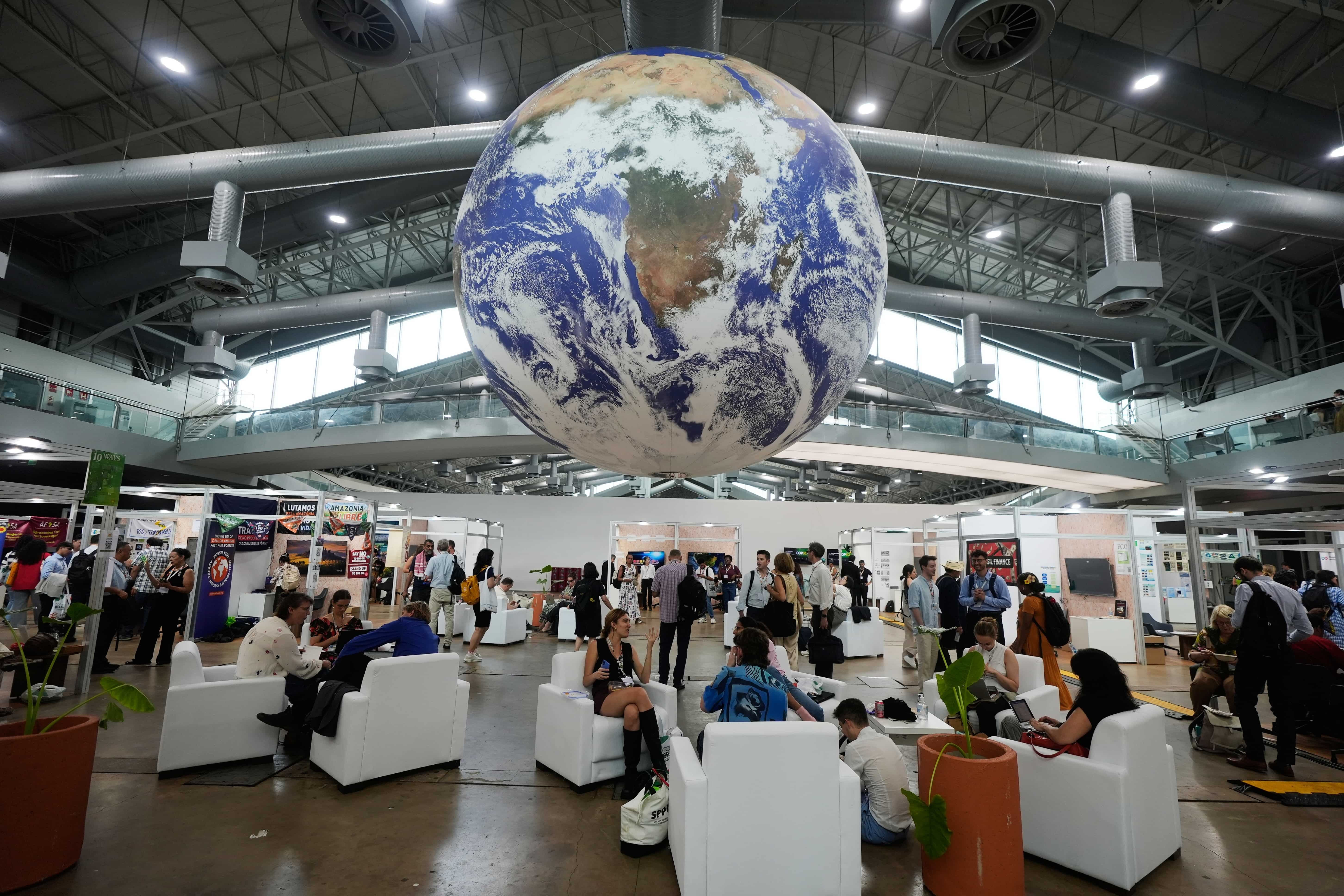
BELEM, Brazil -- At the ongoing 30th UN Climate Change Conference (COP30), which opened here on Monday, leaders and experts called for stronger South-South cooperation to advance global climate governance.
"We find ourselves here in Belem, at the mouth of the Amazon," said Simon Stiell, executive secretary of the UN Framework Convention on Climate Change (UNFCCC), noting that just as the river is nourished and strengthened by over a thousand tributaries, the COP process must be supported in a same way -- powered by the many streams of international cooperation.
"This COP must ignite a decade of acceleration and delivery," said UN Secretary-General Antonio Guterres at the opening plenary of the World Leaders Climate Action Summit ahead of the conference, adding all parties can "choose to make Belem the turning point."
Guterres called for a clear roadmap to mobilize $1.3 trillion annually for developing countries by 2035.
ALSO READ: COP30: UN chief urges immediate, decisive actions against climate change
Brazilian President Luiz Inacio Lula da Silva said he hopes the conference will avoid empty rhetoric and instead focus on delivering on climate commitments. He proposed establishing a governance mechanism within the UN framework to ensure effective implementation, including exploring sanctions for countries that fail to meet commitments.
The absence of high-level US officials at the COP30 climate summit has drawn criticism.
Colombian President Gustavo Petro said the United States, historically the largest cumulative emitter, bears major responsibility for the climate crisis, yet is choosing not to play its expected role at a critical moment.
Samuel Spellmann, a political economist at the Federal University of Para, told Xinhua that the US stance represents not only an avoidance of responsibility, but also an attempt to obstruct global climate progress.
ALSO READ: EU in last-minute talks to set new climate goal for COP30
"The insufficient action of developed countries has, in another sense, prompted the Global South to accelerate efforts toward diversified and self-driven energy transition and climate finance solutions," said Fernando Romero Wimer, professor of international relations at Brazil's Federal University for Latin American Integration.
South-South cooperation is set to be a highlight of the COP30. As the host nation, Brazil has already invited multiple countries to join in protecting the Amazon rainforest. Lula also said that in the poor regions of Latin America and Africa, collaborative efforts to develop renewable energy could create jobs and economic benefits while addressing climate change.
Highlighting Brazil-China cooperation in renewable energy, Lula said China has become a model in advancing green transition through technological innovation.
As of Sept 30, fewer than one-third of the parties to the Paris Agreement had submitted or announced updated Nationally Determined Contributions (NDCs) that include 2035 targets.
READ MORE: Brazil opens three weeks of COP30-linked climate events
However, Beijing has submitted its 2035 NDCs to the UNFCCC Secretariat, expanding the targets to cover all greenhouse gases across the entire economy -- a historic first.
China's contributions to global climate action, particularly through South-South cooperation, are expected to draw significant attention during the conference.
By the end of October 2025, China has signed 55 memoranda of understanding on South-South cooperation to address climate change with 43 developing countries, according to a white paper released Saturday by China's State Council Information Office.
Moreover, China will host several "China Pavilion" side events during COP30, covering topics such as carbon market development, pathways to carbon peaking and neutrality, and low-carbon technology innovation.
Leila da Costa Ferreira, an environmental sociology scholar at the University of Campinas in Brazil, said solidarity among developing countries is particularly important, noting that in recent years, China has advanced innovation-driven development and become a key driver of global green transition.


